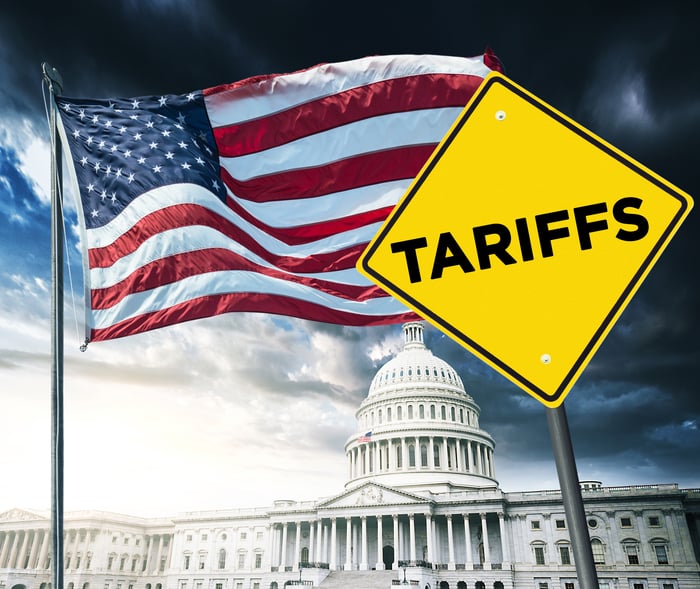As the Market Fluctuates in Response to President Donald Trump's Tariffs, What Stocks Are Safe?
When trying to pick stocks during an unpredictable trade war, I like to look for companies that sell essentials or that aren't dependent on foreign manufacturing or materials. It's important to point out that no stock is completely safe from the economic damage such events can cause, but these three are more insulated from its impacts than many.
Netflix
Netflix (NASDAQ: NFLX) doesn't manufacture or sell any physical products, and its streaming video assets don't need to be moved across borders in ways that would subject them to tariffs. It is in the content game, and relies on subscriptions for most of its revenue.
Where to invest $1,000 right now? Our analyst team just revealed what they believe are the 10 best stocks to buy right now. Learn More »
When it reported its Q1 results, Netflix said that it wasn't changing its outlook for the second quarter, during which it anticipates year-over-year revenue growth of 15.4%, and diluted earnings per share of $7.03, up from $4.88 in the prior-year period.
Still, Netflix could take a hit if consumers -- faced with higher expenses on an array of other fronts -- start to cut back on discretionary spending in the form of streaming subscriptions. Moreover, if President Donald Trump's tariffs have detrimental impacts overseas, that could hurt Netflix's growth in foreign markets. That said, I still view the company as being relatively insulated from trade war headwinds.

Image Source: Getty Images
Walmart
My main theory here is that tariffs are inconsequential to necessity. People need to buy groceries, and Walmart (NYSE: WMT) is the country's largest supermarket chain.
I think the scale of Walmart's brick-and-mortar stores gives it a sound advantage, even in a retail environment that is shifting spending to online options. Its extensive store count gives it proximity to a huge number of shoppers. This makes it easier for the company to deliver online orders, as well as to fulfill digital orders for pick-up. In all, its e-commerce sales increased 16% globally in the fourth quarter.
On an annual basis, Walmart's revenue has grown consistently, and that shows in its stock price performance. Shares of Walmart have increased by about 120% over the last five years, and so far in 2025 they're up by 6.3% even as the S&P 500 is down by 5.5%.
Looking ahead to its fiscal 2026, the company currently is forecasting a net sales gain of 3% to 4%. This is a Steady Eddie stock, and I like it in a tariff-ridden environment because so much of what it sells is essential for everyday life.
Essential Utilities
Utilities stocks aren't typically the most exciting investments, but this year Essential Utilities (NYSE: WTRG) is beating the S&P 500.
It offers water services and natural gas to customers in nine states, and pays a dividend that yields 3.2% at the current share price. Even in the toughest of times, who can go without water? This stock offers exposure to some of the simplest necessities in the world, and the stock is up more than 12% year to date.
With the exception of a soft 2023, Essential Utilities has had pretty decent growth rates for a utility stock. Nothing too exciting, but management said it expects adjusted earnings per share to grow at a compound annual rate of 5% to 7% through 2027.
In a more bullish market, this stock might not seem like the best pick because utilities are typically slower to deliver share price gains. In a time where tariffs, a trade war, and pessimism are dominating the mood on Wall Street, it makes sense to have some exposure to something as simple as a water utility that offers a decent dividend.
David Butler has no position in any of the stocks mentioned. The Motley Fool has positions in and recommends Netflix and Walmart. The Motley Fool has a disclosure policy.
 Wall Street Journal
Wall Street Journal